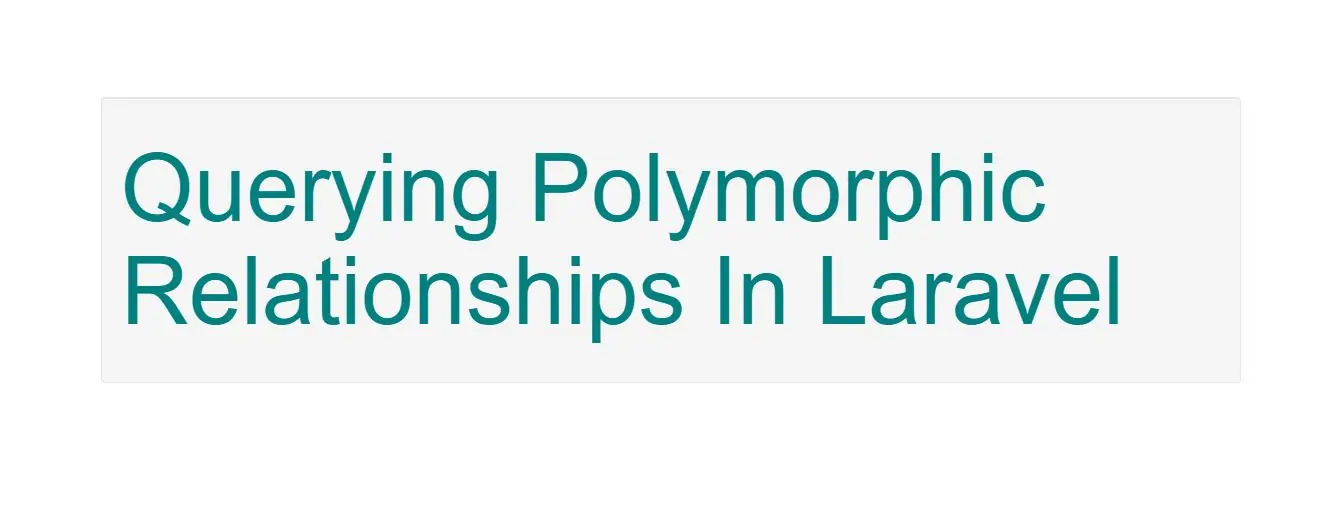
Querying Polymorphic Relationships
To query the existence of MorphTo relationships, you may use the whereHasMorph method and its corresponding methods:
What is MorphTo method?
"MorphTo" is used to define the relationship from a one-to-one or one-to-many polymorphic table to whichever model or models .
What is whereHasMorph() method?
new whereHasMorph() used to combing through one result after another.
use Illuminate\Database\Eloquent\Builder;
// Retrieve comments associated to posts or videos with a title like foo%...
$comments = App\Comment::whereHasMorph(
'commentable',
['App\Post', 'App\Video'],
function (Builder $query) {
$query->where('title', 'like', 'foo%');
}
)->get();
// Retrieve comments associated to posts with a title not like foo%...
$comments = App\Comment::whereDoesntHaveMorph(
'commentable',
'App\Post',
function (Builder $query) {
$query->where('title', 'like', 'foo%');
}
)->get();
You may use the $type parameter to add different constraints depending on the related model:
use Illuminate\Database\Eloquent\Builder;
$comments = App\Comment::whereHasMorph(
'commentable',
['App\Post', 'App\Video'],
function (Builder $query, $type) {
$query->where('title', 'like', 'foo%');
if ($type === 'App\Post') {
$query->orWhere('content', 'like', 'foo%');
}
}
)->get();
Instead of passing an array of possible polymorphic models, you may provide * as a wildcard and let Laravel retrieve all the possible polymorphic types from the database. Laravel will execute an additional query in order to perform this operation:
use Illuminate\Database\Eloquent\Builder;
$comments = App\Comment::whereHasMorph('commentable', '*', function (Builder $query) {
$query->where('title', 'like', 'foo%');
})->get();